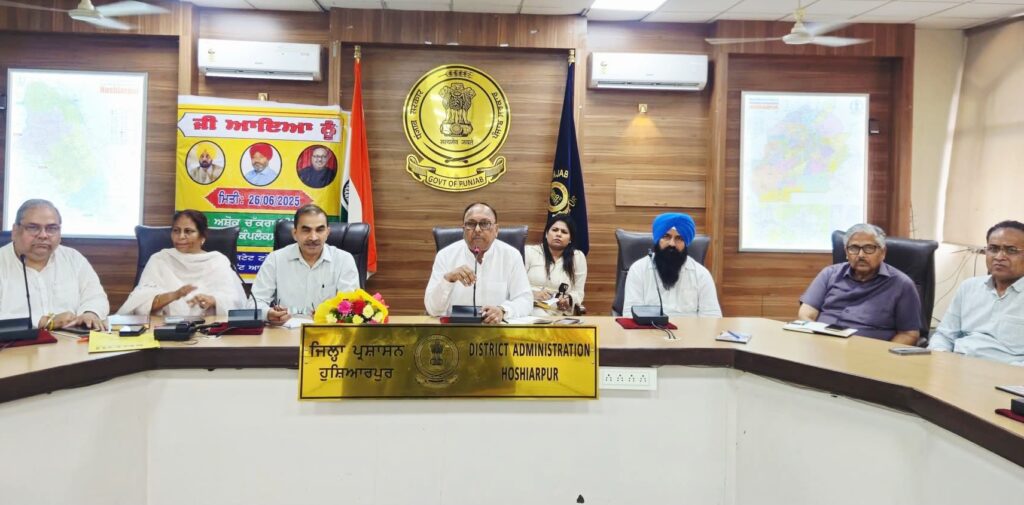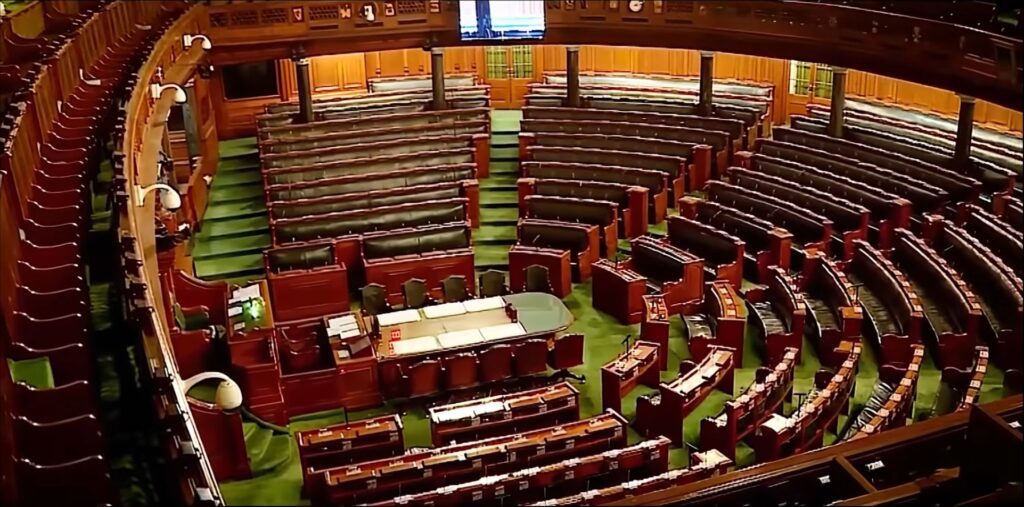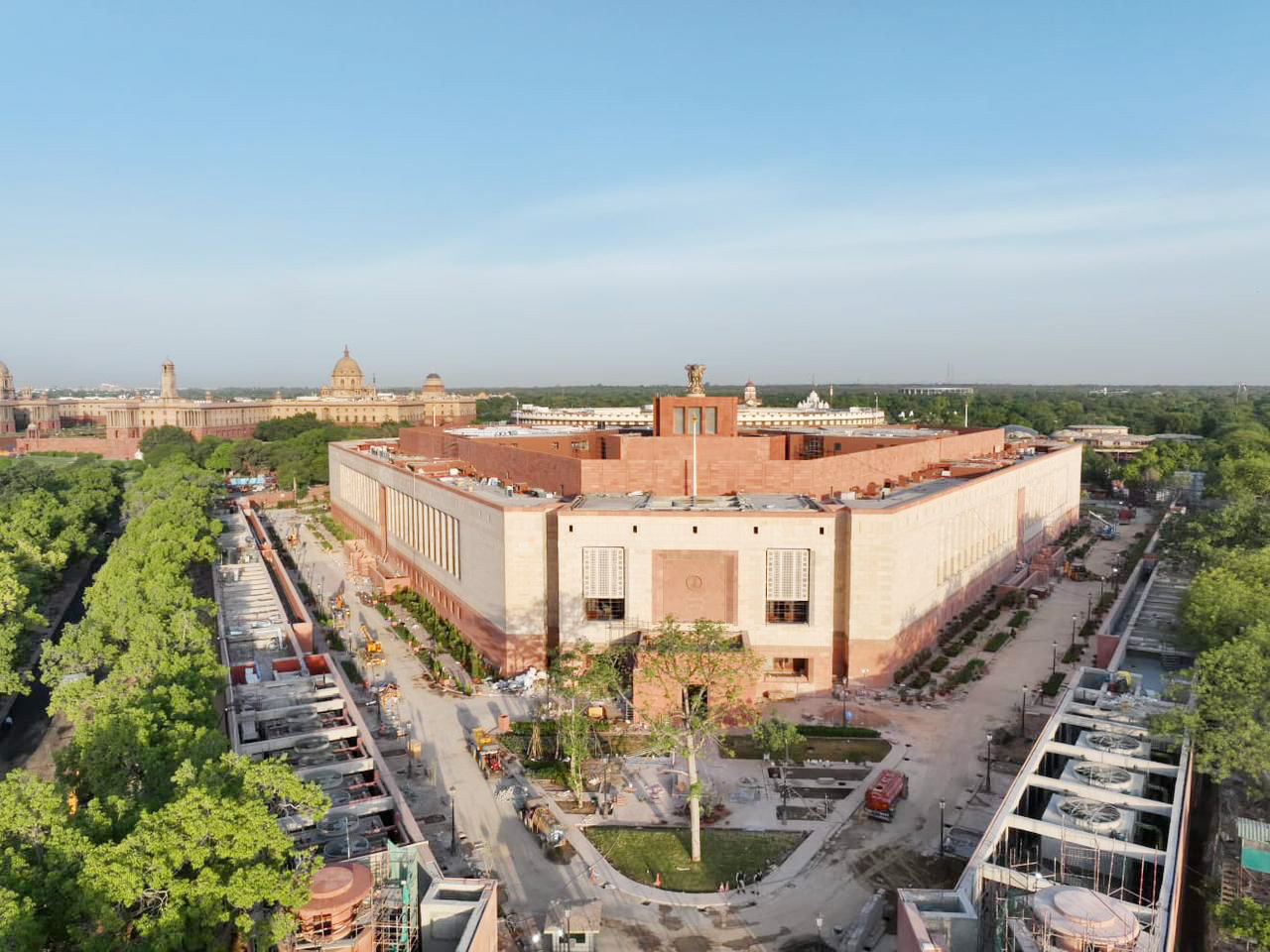India political news is dominated by the recent Parliament news India and government decisions. In the monsoon session, lawmakers pushed through important bills and stirred heated debates. Key legislative updates and governance reforms are making headlines, from major bill passages in Parliament to broad policy changes affecting daily life. This article provides a comprehensive roundup of India politics trending stories — summarizing trending government updates, major bills introduced or passed, opposition reactions, and new reforms. Readers will gain clear insights into recent legislative action and policy shifts, helping them stay informed on the top India political developments of the day.
- Stay updated on latest developments: We explain what happened in Parliament and which bills or reforms are newsworthy.
- Understand government decisions: Learn about new policies like the GST overhaul and Income Tax changes, and how they impact citizens.
- Opposition perspective: See what issues parties are raising and how they’ve reacted to government moves.
- Contextual background: Get key examples and stats (e.g. parliamentary productivity, major protest reasons) to understand the significance.
New Parliament House in New Delhi (Sansad Bhavan). The image shows India’s new Parliament building, the centre of recent legislative action. In late July and August 2025, Parliament convened to debate and pass a slate of bills. However, the session was marked by frequent disruptions and a record low attendance in question hours. According to PRS India, the Lok Sabha (Lower House) functioned only about 29% of its scheduled time and the Rajya Sabha about 34%. Many MPs voiced frustration over this inefficiency. Special security-focused discussions were held: for example, both Houses conducted a debate on “Operation Sindoor” (India’s counter-terror response after the Pahalgam attack) where Home Minister Amit Shah participated. Meanwhile, only a fraction of planned questions were answered, and the day-to-day schedule was repeatedly interrupted.
Parliament News India: Major Bills and Legislation

Despite the chaos, Parliament passed several important bills. The government listed key bills covering shipping, sports, gaming, taxation, and more. For example:
- Merchant Shipping Bill, 2025: Modernises colonial-era shipping laws, making ship registration easier and improving safety standards for mariners.
- National Sports Governance Bill, 2025: Overhauls sports federations for transparency, ensuring better management of funds and athlete representation.
- Online Gaming Bill, 2025: Creates clear regulations for online gaming companies, distinguishing games of skill from chance and protecting players against fraud.
- Income-tax Bill, 2025: A comprehensive rewrite of India’s tax code (the old Income Tax Act, 1961) was introduced, then withdrawn and reintroduced with major revisions.
- Taxation Laws (Amendment) Bill, 2025: Adjusts tax rates and procedures to sync with the new income tax framework.
- Others: Amendments concerning GST for Manipur, ports modernization, mineral mining, and AIIMs (management institutes) were also enacted.
Several of these were passed quickly and with limited debate. Parliament sources noted that persistent opposition walkouts and disruptions led to “crucial bills” being passed without full discussion. The Income-tax (No.2) Bill, 2025 was famously introduced and passed on the same day, following the withdrawal of the previous draft.
| Bill (2025) | Purpose/Highlights |
| Merchant Shipping Bill | Modernizes India’s shipping laws; simplifies ship registration and aligns safety standards with global norms. |
| National Sports Governance Bill | Reforms sports federations for transparency, accountability, and better athlete representation. |
| Online Gaming Bill | Regulates online games (skill vs chance), mandates fair play, and protects users in the booming gaming industry. |
| Income-tax Bill (No.2) | Overhauls the century-old tax code, incorporating parliamentary committee recommendations. |
| GST (Manipur Amendment) / Ports / Mining Bills | Miscellaneous amendments including Manipur’s GST, ports modernization, and mining regulation updates. |
Several new bills were introduced but not yet passed. On August 20, Home Minister Amit Shah tabled three significant draft bills in Parliament:
- Constitution (130th) Amendment Bill: Proposes that no person (including PM, CMs, Ministers) can remain in office if imprisoned. It includes a rule that failure to obtain bail within 30 days would trigger automatic disqualification.
- Union Territories (Amendment) Bill, 2025: Adjusts governance rules for Delhi and Puducherry (details not yet finalized).
- Jammu & Kashmir Reorganisation (Amendment) Bill, 2025: Fine-tunes administrative divisions in J&K after its 2019 reorganisation.
These proposals signal a push for governance reforms on constitutional lines, but they also drew sharp objections. Critics say barring jailed politicians from office is a populist move to punish opponents.
Inside the Lok Sabha chamber, New Parliament building in New Delhi. This image shows the Lok Sabha debating hall during a session. Many legislative sessions this year were dominated by disruption and debate on procedure rather than on specific bills. For instance, MPs repeatedly demanded discussion on national issues like communal violence or price rise, but bills were often rushed through without addressal. On Aug 21, Speaker Om Birla lamented that Parliament spent just 37 out of 120 scheduled hours in actual business. Overall, this session is noted for a high number of bills passed but little legislative scrutiny.
Opposition Reactions and Protests
Opposition parties have been vocal and disruptive in reaction to these developments. Across both Houses, members have staged walkouts, tear-gassing protests, and demands for urgent debates on contentious issues. The INDIA bloc (Opposition alliance) accused the government of pushing bills through “without accountability” and demanded parliamentary discussions on matters like the Manipur disturbances or electoral reforms.
Key points of opposition action include:
- Parliament Protests: Opposition MPs frequently protested in the well of the House, shouting slogans about unemployment, inflation, and alleged misuse of agencies. They argued that pressing public issues were being ignored while the government “bulldozed” legislation. Many lawmakers demanded a discussion on these issues before proceeding with new bills, but Majority leaders refused to stall business.
- Digital Data Protection Act (DPDP) Concerns: In early April 2025, INDIA bloc leaders (including Gaurav Gogoi, Priyanka Chaturvedi) held press conferences urging repeal of Section 44(3) of the DPDP Act, 2023 tribuneindia.com. They claimed this provision replaced an RTI exemption, effectively undermining the Right to Information and press freedom. Though this Act was passed last year, the renewed demand reflects ongoing friction over digital governance.
- Electoral Roll Protests: Earlier, opposition parties protested an election commission move in Bihar to revise voter lists, fearing many poor and rural citizens could be left out. This was a key political flashpoint outside Parliament, underscoring anxiety that electoral changes could disenfranchise minority voters.
- Other Issues: MPs have also raised state-specific demands, such as special status for Andhra Pradesh or investigation into police actions. However, many of these were not entertained due to session adjournments.
In sum, the opposition’s narrative is that the government is prioritizing legislative output over democratic debate. They warn that lack of discussion on important bills erodes accountability. The government, on the other hand, insists these bills (e.g. constitutional amendments) must proceed for national interest. This tug-of-war has been a defining feature of India political news today.
Trending Government Updates: Major Reforms

Outside the Parliament chambers, the government announced several high-profile policy reforms. The most sweeping was the recent GST overhaul, aimed at simplifying taxation and providing relief to consumers.
- GST Slab Rationalisation: On September 3, 2025, the GST Council approved a “two-tier” tax structure. Almost all goods and services were moved into 5% or 18% slabs. Essentials like footwear and furniture were cut to 5%, while most items remain at 18%. Higher “sin” and luxury items (e.g. aerated drinks, tobacco) stay at 28–40%. This change takes effect from 22 September 2025.
- GST on Vehicles & Auto Sector: The Council also targeted auto taxes. GST on small cars and motorcycles (engine ≤350cc) was slashed from 28% to 18%. Commercial vehicles (buses, trucks, auto parts, three-wheelers) now uniformly attract 18% instead of 28%. Only luxury vehicles (larger cars, yachts, helicopters) are taxed at 40% ndtv.com. These changes, bundled with the slab cut, are expected to boost demand as India heads into the festive season.
- Ease for Common Goods: The reforms also benefit households and businesses. Many consumer goods saw tax reductions or exemptions: for example, hotel stays up to ₹7,500 are now taxed at 5% (down from 12%); gym memberships and fitness services moved from 18% to 5%. Educational items like crayons and school kits became 0% tax, making learning materials cheaper. Even life and health insurance premiums are now GST-exempt, and 33 life-saving drugs were made free of tax. Overall, next-gen GST promises “lower prices, higher demand” and simpler compliance.
- Income Tax Overhaul: The government continues to revamp direct taxes. Finance Minister Nirmala Sitharaman withdrew the original Income-Tax Bill, 2025 (introduced in February) and on August 11 reintroduced a revised version. The new bill incorporates nearly all recommendations from a parliamentary select committee. Key changes include clearer definitions of “beneficial owner” (for shell companies) and restoring some deductions for dividends. Once passed, this will replace the decades-old Income Tax Act and digitize provisions to ease compliance.
- Other Reforms: Besides taxes, the cabinet approved structural measures. For example, amendments to allow online gaming regulation and to streamline sports bodies (the bills mentioned above) are governance reforms. The government also continues infrastructure projects and new schemes (not detailed here) that are mentioned in policy briefs.
In short, the latest government updates prioritize fiscal and regulatory changes. The GST reform in particular was hailed by ministers as a “people’s reform” set to boost manufacturing and consumption. These trending government updates are covered under India political news today as they directly affect citizens’ wallets and businesses.
A government meeting on GST reforms. Officials (shown) recently met to discuss taxation policy. In this session, Finance Minister Sitharaman announced the overhaul of India’s indirect tax system. The reforms are framed as a relief for the common man and a boost for industry. By studying these policy details – from GST Council decisions to tax bills – readers can better grasp the current political environment in India.
Conclusion
India political news today revolves around Parliament’s flurry of legislative activity and bold government decisions. The monsoon session, despite disruptions, saw a host of major bills passed – from shipping and sports to taxation reforms. Opposition parties strongly opposed many of these moves, citing lack of debate on crucial issues. On the executive side, sweeping GST changes and tax code updates have been unveiled, signaling a drive to streamline the economy.
Readers of this roundup will gain a clear snapshot of today’s trending government updates: the legislative highlights, the key policy reforms, and the public response. By understanding these developments – such as new tax slabs, police vs. civil rights debates, and parliamentary productivity – citizens and observers can stay informed about the direction of India’s governance and political landscape.
FAQs
Q1: What were the major bills passed in Parliament’s recent session?
A: The recent (Monsoon 2025) session passed several landmark bills. Key examples include the Merchant Shipping Bill (modernizes shipping laws), the National Sports Governance Bill (reforms sports bodies), and the Promotion and Regulation of Online Gaming Bill (sets rules for online games). Finance-related bills were also passed, such as the Income-Tax Bill, 2025 (revamping the tax code) and accompanying tax amendment bills. In total, 12 bills cleared the Lok Sabha and 14 the Rajya Sabha during this session.
Q2: What GST tax reforms were announced recently?
A: In early September 2025, the GST Council approved a major two-rate structure. Virtually all goods/services were consolidated into 5% or 18% slabs. Notably, GST on small cars and motorcycles (≤350cc) was cut from 28% to 18%, and a uniform 18% rate was set for buses, trucks, three-wheelers and auto parts. Luxury vehicles and sin goods remain at 40%. These changes take effect from Sept 22, 2025 and are aimed at reducing costs for consumers and boosting manufacturing.
Q3: How did opposition parties react to recent government bills?
A: Opposition parties actively protested many government actions. They often boycotted or disrupted proceedings, demanding debate on public issues. For example, the INDIA bloc condemned the Digital Personal Data Protection Act’s Section 44(3) as an attack on RTI, urging its repeal. They accused the government of “bulldozing” bills through Parliament without accountability. Widespread walkouts occurred when MPs felt urgent national issues (like price inflation, communal tensions, or election reforms) were ignored in favor of passing legislation.
Q4: When will the new GST rates come into effect?
A: The GST reforms announced in September 2025 are scheduled to take effect on 22nd September 2025. From that date, the new two-slab system (5% and 18%) and the revised vehicle tax rates will apply to relevant goods and services.
Q5: How productive was the recent Parliament session?
A: By many measures it was one of the least productive. Parliament’s own records show that the Lok Sabha sat for only 29% of its planned time and the Rajya Sabha 34%. This means two-thirds of the session was lost to disruptions and adjournments. For example, out of 419 scheduled question hours, Lok Sabha answered just 55 questions during the session. Many days saw zero hours of questions answered. In sum, lawmakers spent minimal time on debate, focusing instead on clearing the legislative agenda quickly.




